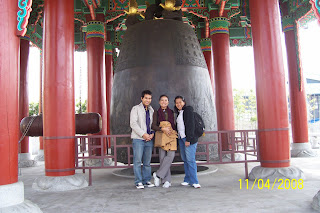The May 18 Gwangju Democratic Uprising
'The May 18 Gwangju Democratic Uprising' is a book of a compelling story about the democratic movement in Gwangju in 1980. It contains photos, story, and chronology of the May 18 Gwangju Democratic Uprising in 1980. The pictures are placed in the first pages of the book. This book was translated by Lee Kyungsoon and Ellen Bishop. Lee Kyungsoon is chair and professor of English Department at Chonnam National University. She already published several articles and books. Ellen Bishop was a visiting professor in the English Department of Chonnam National University. Now she teaches at Pittsburgh University, also, she has published some articles and books. The book was authored by a committee of around 10 individuals. They collected data from the witnesses, victims, families of victims, and other resources inside and outside (like foreign journalists) of Gwangju, South Korea. This book is published by The May 18 Memorial Foundation. The Foundation is a non-profit organization whose aims is to keep the spirit of the May 18, 1980 struggle and commemorate the May 18 Gwangju democratic uprising.
The May 18 Gwangju democratic uprising was the most tragic and disgraceful incident in modern Korean history. It happened on May 18, 1980 in Gwangju, South Korea. It started when Chun Doo-hwan’s military junta did a coup dictat on December 12, 1979. They occupied the Chonnam Provincial Hall with armed forces sent to Gwangju by the Martial Law Enforcement Headquarters.
The citizens who fought for democracy comprised men and women, old and young. They have high bravery. They were not afraid of soldiers. They became united to fight for their human rights and democracy. The women did not only follow demonstrations on the road, but also they prepared food for the freedom fighters. They made 'Ju Mok Bab' made of rice and 'Kim' (a seaweed wrapper). 'Ju Mok Bab' is one of the symbols of the May 18 democratic uprising. The women are seen making 'Ju Mok Bab' from the pictures at page 22.
The citizens who fought for democracy comprised men and women, old and young. They have high bravery. They were not afraid of soldiers. They became united to fight for their human rights and democracy. The women did not only follow demonstrations on the road, but also they prepared food for the freedom fighters. They made 'Ju Mok Bab' made of rice and 'Kim' (a seaweed wrapper). 'Ju Mok Bab' is one of the symbols of the May 18 democratic uprising. The women are seen making 'Ju Mok Bab' from the pictures at page 22.
This democratic movement happened for almost 10 days. Although many people were dying, the Gwangju citizens never stopped in their struggle during those fatefull days. They fight more actively and opposed the soldiers. The victims of the martial law force's brutality numbered 4,369: 154 killed, 74 missing, 4,141 wounded (including death due to injury), and several were arrested. This data was based on the present condition of compensation related to the May 18 democratic uprising as of November 31, 2006. Although it is believed that the number could be higher.
Indonesia had experience riots also on May, 1998. It have some similarities with the May 18 Gwangju Democratic Uprising. It happened in several cities in Indonesia, but mostly in Jakarta. The freedom fighters were mostly university students. They fought against the rule of former president, Soeharto. Soeharto ruled Indonesia a dictator for almost 30 years. There were a lot of innocent Indonesian citizens who died and became victims of the riots.
The marked differences of the May 18 Gwangju Democratic Uprising from that of the May 1998 riots of Indonesia are:
1. The struggle of Gwangju citizens for their human rights and democracy was fruitful and brought Korea's democratization. After the democratic movement, human rights and democracy situation in Gwangju and Korea became better.However, in Indonesia, this remains unaddressed even after 10 years with and four presidential elections. The past governments never put this case as an important agenda of addressing human rights abuses and cases of violence. Whereas, in these riots there were hundred and even thousand innocent Indonesia citizens who died.
2. The government of South Korea awarded compensation to those victims who survived and the victim's families. While in Indonesia, up until now victims are not yet compensated.
Two of the marked differences indicate that in Indonesia the government does not have concern on human rights and democracy. Until now, the victim's families are still fighting for justice and their due compensation.
I have high regard for both democratic movements in Gwangju and Indonesia. The freedom fighters are role model for us who continue the fight for human rights, democracy, and peace in our country. In reading the book, it gave me an impression that our fight must be focused and we should always have resoluteness and patience.
Finally, I hope that soon there will be resolution to the May 1998 Riots of Indonesia. I hope that NGO activists struggles will have its due reward like what May 18 Gwangju Democratic Uprising had attained, so that freedom and democracy will flourish.
For more information please klik here:
























